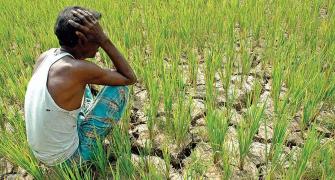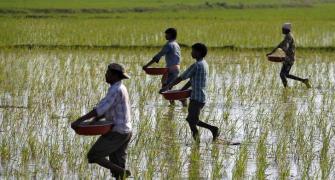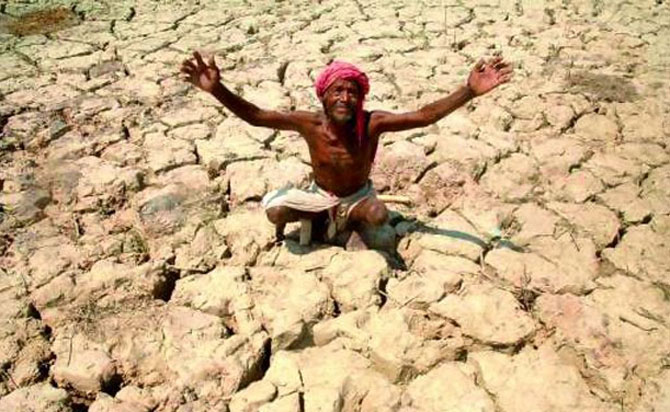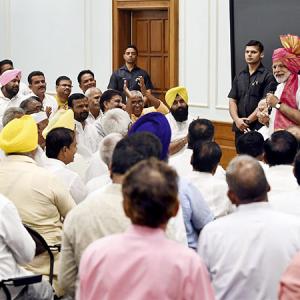Among the states due for election next year are AP, Haryana and Odisha, which have a fair share of agri credit.
If these states individually announced debt relief, the combined waiver would be at least around Rs 600 bn to Rs 700 bn.
Clearly, this will be a frightening challenge for Indian banks.
Abhijit Lele reports.
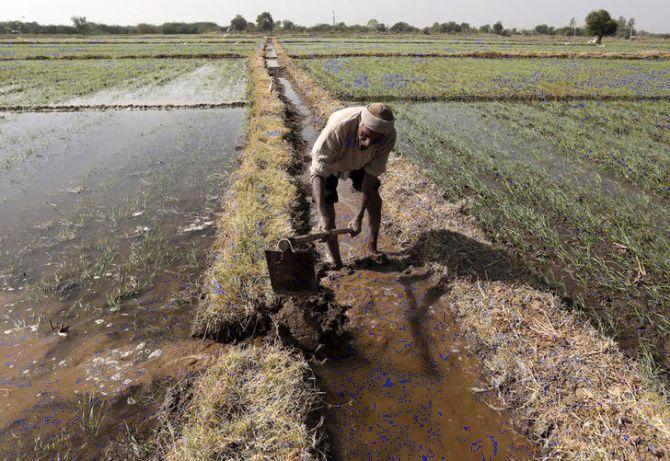
The litany of schemes rolled out to waive farm loans by state governments may put pressure on fiscal profile and hit the outlay for capital expenditure.
It is also likely to give rise to defaults in non-farm loans in rural areas, according to banks and rating agencies.
Aditi Nayar, vice-president and principal economist, ICRA, said with assembly elections likely to be held in several states by the end of 2019, there is a possibility of continued pre-election announcements from state governments.
Accordingly, states may have to curtail the pace of growth of capex to avoid a fiscal slippage.
There is concern that there may be announcements of expenditure on items such as bonuses, MSPs and crop loan waivers, among others, over the next year.
It would boost consumption growth, but may adversely impact the quality of fiscal deficit as well as GDP growth, ICRA said.
Flagging concerns over the risk to state finances, Madan Sabanavis, chief Economist, CARE Ratings, said even if the provision for debt waiver is spread over the years, it will put pressure on state finances as income may not increase at the pace to absorb additional demands.
Finding resources for the farm scheme may become a challenge and capital expenditure may be dented.
Soumya Kanti Ghosh, group chief economic adviser, State Bank of India, said debt waivers are the flavour of the town now. Several states have already announced loan waiver to the tune of Rs 1.2 trillion since 2017, the implementation of which is still under way.
Among the states which are due for election next year are Andhra Pradesh, Haryana and Odisha, which have a fair share of agri credit.
Even if these states individually announce debt relief, the combined waiver would be at least around Rs 600 billion to Rs 700 billion till May 2019. Clearly, this will be a frightening challenge for Indian banks.
The 14th Finance Commission has worked out a revised fiscal roadmap for the states to have zero revenue deficit and the fiscal deficit within three per cent of the gross state domestic product.
The Reserve Bank of India, in its study on state finances (Fy18 and Fy19), flagged concerns on fiscal pressures from debt waiver schemes. Visible fiscal pressures are emerging for several states on the expenditure front, particularly on account of pay revisions, interest payments and other state-specific schemes like farm loan waivers.
However, RBI's new Governor Shaktikanta Das declined to share his view on farm debt waivers, saying he won't give views on all aspects. His two predecessors -- Dr Raghuram Rajan and Dr Urjit R Patel -- had opposed such schemes due to a detrimental effect on credit.
Bankers said the debt waiver gives relief to farmers affected by drought and calamities. This is a beneficial outcome. However, there is also a downside to such schemes as it hits credit discipline and raises risk of defaults on non-farm loan portfolio (consumer loans).
In the run-up to the Lok Sabha elections in April-May 2019, the Centre is mulling loan waiver scheme for farmers. While PSU banks get compensated by governments -- the Centre and states -- after a scheme is announced, the harm to the bank's balance sheet is much more as borrowers stop repayments in anticipation of such sops.


